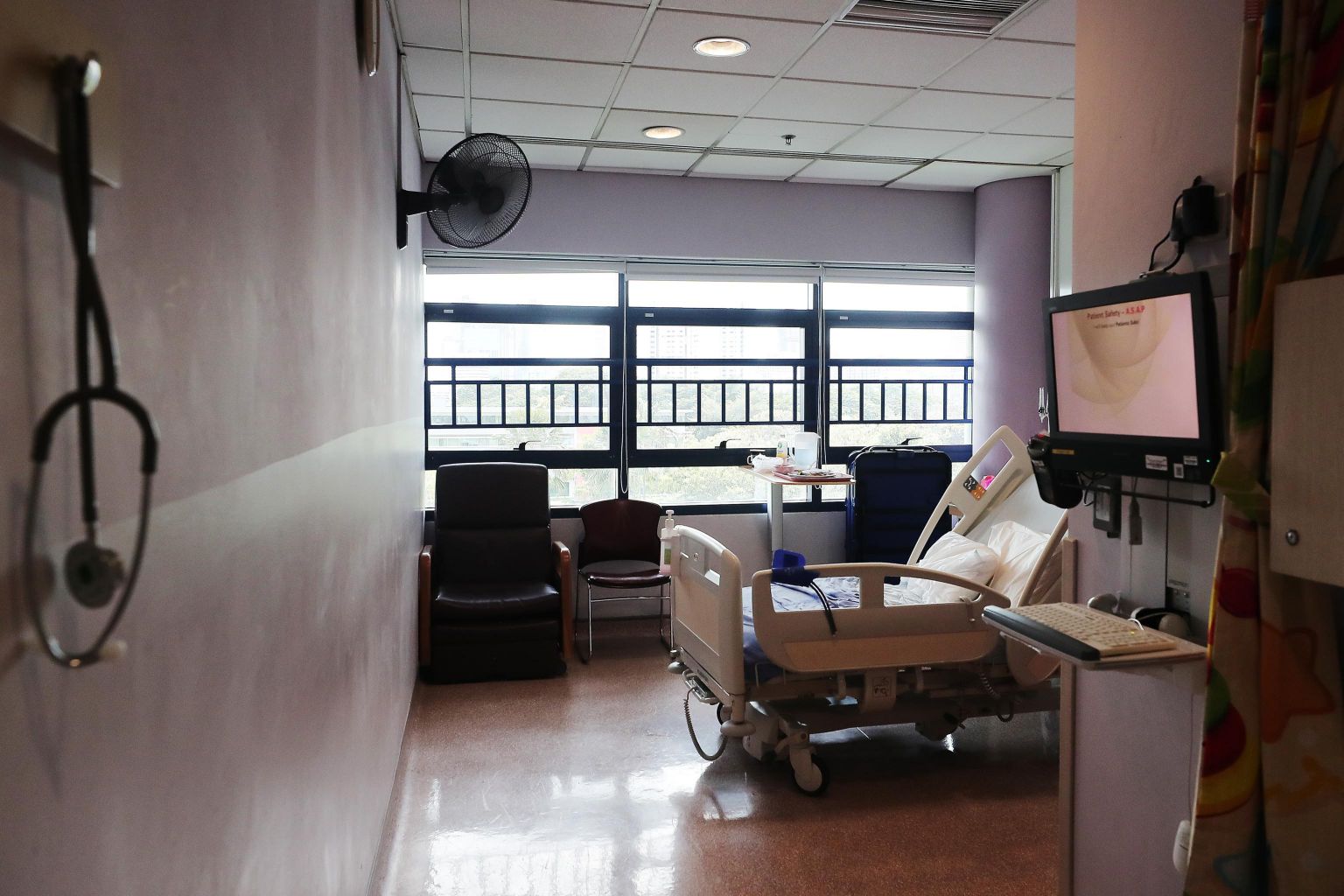MOH to study if feasible to make IP insurance fully portable
Sign up now: Get ST's newsletters delivered to your inbox

Currently, those who choose to relinquish their private Integrated Shield plans can fall back on MediShield Life.
ST PHOTO: KELVIN CHNG
SINGAPORE - The Ministry of Health (MOH) will study whether Integrated Shield Plan (IP) insurance can be made fully portable, though this could result in significantly higher premiums, said Senior Minister of State for Health Koh Poh Koon in Parliament on Monday (May 10). He said MOH will look at examples from abroad.
"MOH recognises that some policyholders may wish to switch insurers, whether for more competitive premiums or for better benefits such as access to more panel doctors, but are unable to do so because of pre-existing conditions," said Dr Koh.
The ministry will look into this taking into account that IPs are commercial products, with features and pricing ultimately determined by private insurers, he said.
"However, insurers may potentially need to increase the premiums significantly for all policyholders to price in the increased risk they assume for portable IP that covers pre-existing conditions," he added.
This follows the recent battle between the Life Insurance Association (LIA) and the Singapore Medical Association (SMA), largely over IP insurers having a relatively small number of private specialists on their panels.
IP plans offer private insurance coverage on top of MediShield Life cover.
Currently, those who choose to relinquish their private IP plans can fall back on MediShield Life, which offers all Singaporeans coverage for life with no exclusions, Dr Koh pointed out.
MediShield Life covers all pre-existing conditions for large medical bills in a government hospital B2 or C ward.
Currently, those who choose to relinquish their private IP plans can fall back on MediShield Life, which offers all Singaporeans coverage for life with no exclusions, Dr Koh pointed out.
MediShield Life covers all pre-existing conditions for large medical bills in a government hospital B2 or C ward.
MediShield Life covers all pre-existing conditions for large medical bills in a government hospital B2 or C ward.
Dr Tan Wu Meng (Jurong GRC) had asked about the measures in place to protect policyholders should an IP insurer exit the market. He also asked about the feasibility and implications of requiring the insurers to accept policyholders who have switched from another insurer, such that existing covered conditions are not permanently excluded from future coverage.
Making IP plans portable would allow people a wider choice of coverage, without being penalised for it.
Right now, IP policyholders are free to switch plans but the problem is that IP insurers do not typically cover pre-existing conditions. Meanwhile, IP policyholders, particularly those who have purchased riders, have faced rising premiums in recent years.
Less than half of Singapore residents have riders, which are add-on plans that commonly cover the deductible and co-payments portions of the bill. These plans must be paid for by cash.
Yesterday, Dr Koh said in reply to Dr Tan that to ensure that insurers remain financially sound and are able to meet their obligations to policyholders, the Monetary Authority of Singapore exercises regulatory oversight over the insurers' financial standing, risk management, and governance.
Should an IP insurer exit the market, the insurer or liquidator will arrange for IP policies to be transferred to another insurer for continuity of coverage and that MAS will ensure that policyholders' interests are properly accounted for, he said.
Over the past five years, about 5 per cent of IP policyholders relinquished their IP per year on average, according to MOH. They may have opted for different coverage after considering the cost of the premiums, their financial resources and healthcare needs. Their average age was 34, he said.
MOH said data on the number of policyholders who did not subsequently buy a new IP or were later admitted to public hospitals is not available.
Private healthcare costs have been rising rapidly in Singapore. Between 2007 and 2019, private hospital bills among IP cases grew at 4 per cent, twice as fast as unsubsidised bills in public healthcare institutions.
In Parliament earlier, Dr Koh also said that the 12-member Multilateral Healthcare Insurance Committee (MHIC) appointed last month held its first meeting on April 27. The MHIC comprises representatives from the Academy of Medicine, Singapore (AMS), Consumers Association of Singapore (Case), Fee Benchmarks Advisory Committee, Life Insurance Association (LIA), Singapore Medical Association and private hospitals.
MHIC, it said, will prioritise four things:
1. Panels and pre-authorisation, including streamlining processes.
2. Issues pertaining to improving transparency across the board, including providing more detailed and itemised information about healthcare bills and publishing data on claims and premiums so that insurers, providers and policyholders can make better informed decisions.
3. Establishing a claims complaints process supported by AMS and LIA to give stakeholders an avenue for recourse if they feel unfairly treated. Insurers or patients may wish to raise concerns about over-servicing or overcharging, while doctors may have concerns about certain insurer practices.
4. Examining the issues from a patient and consumer-centric viewpoint to safeguard patient and public interests. MOH said that Case will be leading a sub-committee in the MHIC to deal with the matter comprehensively.


